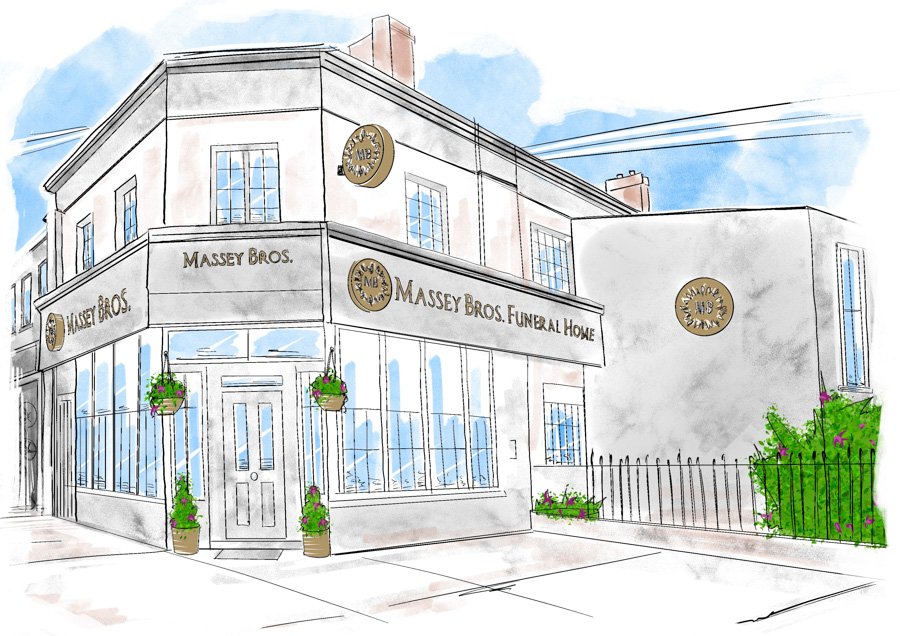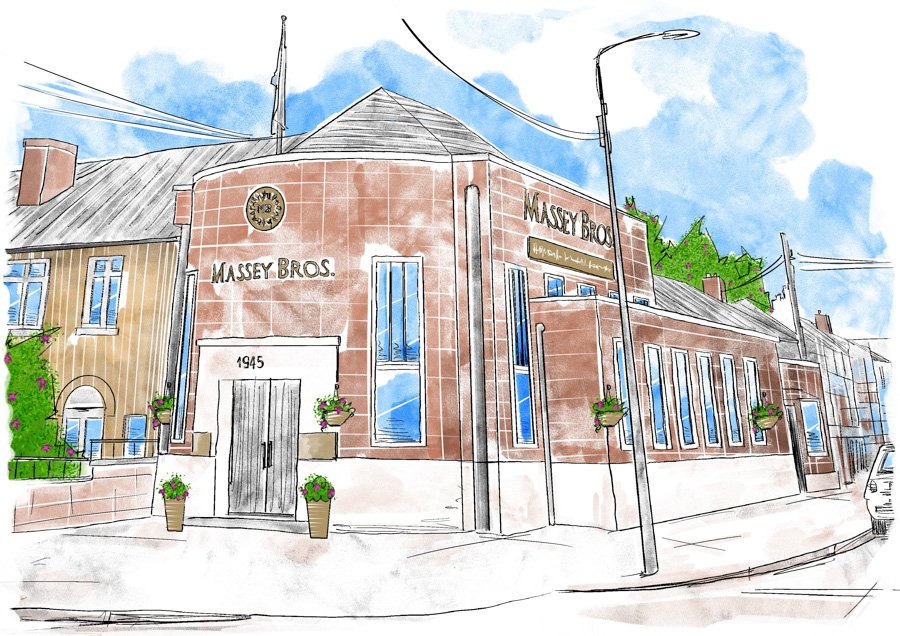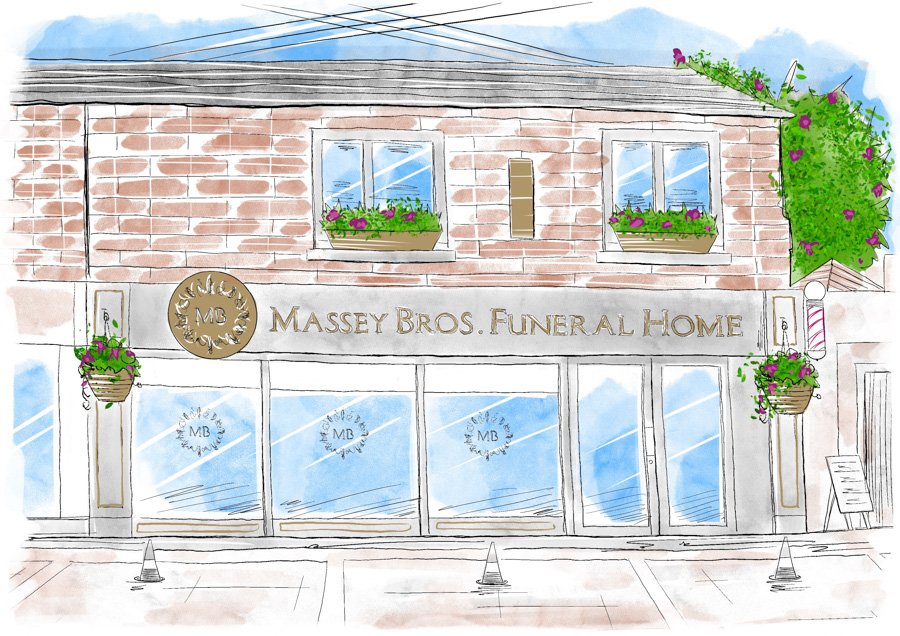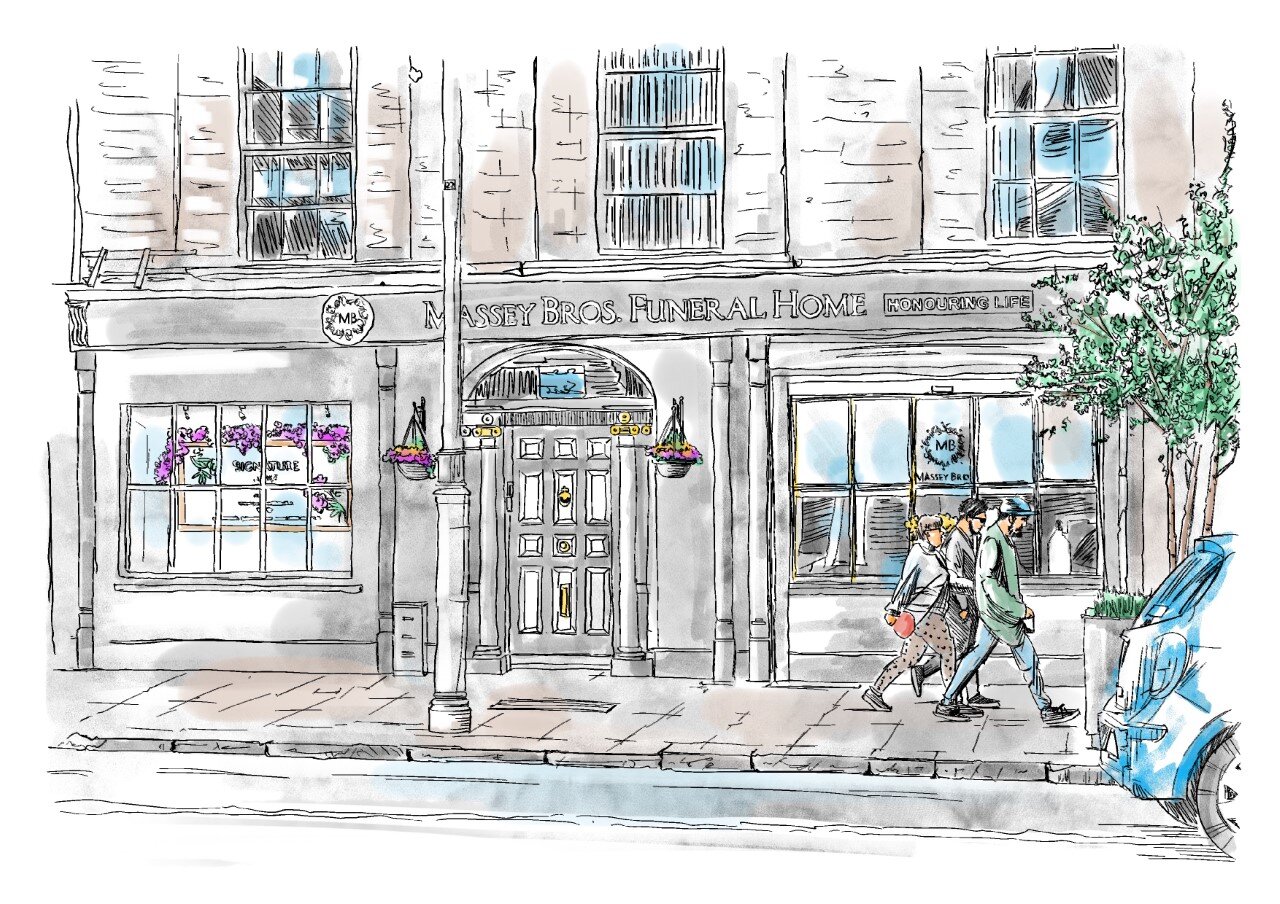
Frequently Asked Questions
When a loved one dies, you may have immediate concerns and questions.
This section deals briefly with some of these questions.
We're available to you personally 24 hours a day - 7 Days a Week.
Call us on: +353 1 453 3333
About Massey Bros
-
Massey Bros. is a family-run, female-led funeral director with more than three generations of experience supporting families across Dublin and throughout Ireland. Since our founding in the 1930s, we have dedicated ourselves to caring for families with compassion, dignity and openness.
Although our team has grown over the years, one belief has always remained unchanged:
Every family deserves time, kindness, respect and gentle guidance.We understand that most people will only arrange one funeral in their lifetime. Our role is to walk beside you throughout the process, offering clarity, support and calm reassurance when you need it most.
-
Our philosophy is grounded in empathy:
We listen carefully. Every story, every detail and every wish matters deeply to us.
We guide gently. We explain each step clearly and simply, so nothing feels overwhelming.
We take care of the details. From paperwork to personal touches, we look after everything that may help ease this difficult time.
We respect every wish. Religious, cultural and personal wishes are honoured at every stage.
We are here whenever you need us. Our phone is always answered — day or night, 365 days a year.
Families often tell us that having a steady, understanding voice by their side made a meaningful difference during a time of loss.
-
Families choose us because:
We are one of Ireland’s longest-established, family-run funeral directors
We are a female-led business with a warm, compassionate ethos
We serve all of Dublin & Ireland through 11 funeral homes
Our staff are diverse, experienced and highly professional
We arrange funerals for all religions, cultures and beliefs
We create traditional church funerals, civil ceremonies and Humanist services
We offer pre-planning in partnership with My Farewell Wishes
We are recognised experts in international repatriation
We are available 24 hours a day, every single day
We are founding members of the Irish Association of Funeral Directors (IAFD)
We are the only Dublin funeral director within the elite global group Selected Independent Funeral Directors
-
Our values remain at the heart of everything we do:
Respect – We treat every loved one and every family with the utmost dignity.
Compassion – We recognise the weight of loss and respond with sensitivity.
Trust – Families place their trust in us, and we honour it through openness, honesty and reliability.
Going the Extra Mile – If something can bring comfort or honour your loved one, we will do our best to make it happen.
-
Yes. We have extensive experience arranging funerals for all religions, denominations, cultures and beliefs, including:
Catholic • Church of Ireland • Muslim • Hindu • Jewish • Humanist • Orthodox • Civil • Non-religious traditions
Every ceremony is handled with sensitivity and deep respect. -
We understand that grief does not follow a straight line.
Our team takes time to understand what you need — whether that is practical help, reassurance, quiet guidance or simply someone to listen.
We aim to ease the burden, reduce uncertainty, and create space for you to remember and honour your loved one.
Arranging a Funeral
-
The key steps are:
Inform the next of kin
Contact the GP, hospital or care home
Notify the local Registrar
Call Massey Bros. — we will guide you gently from here
We coordinate with doctors, clergy, celebrants, cemeteries, crematoria and all relevant authorities on your behalf.
-
We will:
Guide you through every option and decision
Respect the wishes of you and your loved one
Handle all official certificates and permits
Arrange burial or cremation
Coordinate music, flowers, readings and personal touches
Assist with death notices
Arrange memorial cards and headstones
Provide a detailed, itemised estimate
Seek approval before any additional costs
Care for your loved one with dignity and respect
Facilitate private viewing whenever you wish
-
Yes. Arrangements can be made:
At home
In any Massey Bros. funeral home
Over the phone
By email
We will work in whatever way feels easiest for you.
-
Your loved one may repose:
In one of our private Chapels of Rest
At home
In a church
Families may bring photographs or personal items to create a space that reflects the person’s life.
-
Yes. Personalisation options include:
Hymns, songs or favourite music
Readings, poetry and stories
Photo or video tributes
Live streaming
Family participation
Donations in lieu of flowers
Unique touches that reflect your loved one’s personality
-
Costs depend on your choices, including burial or cremation, venue, coffin, flowers, musicians and notices.
We provide:A full written estimate
A breakdown of all third-party fees
No hidden costs
Clear approval before anything additional is arranged
Religious Funerals
-
Yes. We arrange funerals for all faiths and denominations. We coordinate closely with clergy or celebrants to ensure your wishes are honoured.
-
Families may choose:
Hymns or music
Readings, prayers or poems
Participants in the ceremony
Pallbearers
Removal arrangements
A Mass booklet or Order of Service
We can help guide every step.
-
Yes. We can:
Help find a suitable church
Arrange clergy
Provide musicians or singers
Assist with readings
Prepare printed materials
Civil & Humanist Funerals
-
Yes. We can help arrange and host:
Civil funerals
Humanist ceremonies
Celebrations of life
-
Popular options include:
Massey Bros. funeral homes
Crematorium chapels
Community venues
A family home or meaningful location (where appropriate)
-
Favourite music
Readings or poetry
Personal tributes
Photo slideshows
Video memories
Family participation
-
Yes. Our venues have modern live-stream technology for family abroad, and ceremonies can be timed to suit different time zones.
-
Planning ahead:
Reduces pressure on loved ones
Ensures your wishes are fully understood
Provides financial clarity
Offers peace of mind
Helps create the farewell you truly want
-
A clear, user-friendly document that guides you through each funeral choice, allowing you to register your preferences at your own pace.
-
In partnership with My Farewell Wishes, you can:
Register your wishes on the National Register of Wishes
Request a cost estimate for the funeral you have planned
Make a payment toward funeral expenses (optional)
You receive a Certificate of Wishes and a unique registration number.
-
Yes. Your plan can be updated or changed at any time.
-
Simply contact us, and our team will support you through each step.
Learn More
Pre-Planning & My Farewell Wishes
Eco-Friendly Funerals
-
Yes. Sustainable options include:
Biodegradable, sustainably sourced coffins
Natural burial grounds
No embalming (where appropriate)
Charitable donations instead of flowers
Recycled paper for booklets
Eco-friendly catering choices
Reduced single-use plastics
We will guide you through available options.
-
We can assist with:
Headstones and memorials
Acknowledgement cards
Thank-you notes
Planning anniversaries and remembrance ceremonies
Practical administrative tasks
Advice on scattering or interring ashes
-
Ashes may be:
Kept in an urn
Interred in a grave
Placed in a columbarium
Scattered in a meaningful location (with permission)
We’ll guide you through any considerations.
After the Funeral & Continuing Memorial
Other Common Questions
-
Yes. Many families choose to have close relatives or friends act as pallbearers. We will guide and support anyone taking on this role, ensuring they feel prepared and comfortable. Safety and dignity are always prioritised, and our team will be there to assist throughout.
-
Yes. Many of our funeral homes, churches, and crematoria offer live streaming so that family and friends who cannot attend in person can still be part of the ceremony.
We can also help arrange recordings for those in different time zones. -
In many cases, yes. Cremation often avoids the cost of purchasing a burial plot or grave-opening fees. However, costs depend on individual choices such as the venue, type of coffin, and ceremony details.
We will provide a clear, itemised estimate so you can compare options comfortably. -
Yes. With modern care and embalming, funerals can be respectfully delayed to allow family members time to travel home. We will discuss timeframes with you and help plan the most appropriate schedule.
-
Absolutely. Families may choose a civil or Humanist ceremony in:
A Massey Bros. funeral home
A crematorium chapel
A community venue
A private home
Another meaningful location (where appropriate)
We will guide you through venue options and all practical considerations.
-
Yes. We can gently guide you through:
Obtaining additional Death Certificates
Informing banks, insurers, pension providers and other institutions
Closing or transferring accounts
Understanding probate and legal steps
Organising memorials, memorial cards and more
We will point you towards trusted resources and professionals where needed.
-
Yes. While our funeral homes are based in Dublin, we can arrange funerals throughout Ireland and work closely with clergy, celebrants, cemeteries and crematoria nationwide.
We also support families internationally through repatriation. -
Yes. Children are welcome at funerals, and many families find that involvement can help them understand and process the loss. We can offer guidance on how to prepare children in an age-appropriate, gentle way.
-
Yes. Many families choose to include meaningful items such as photographs, letters, small keepsakes or personal belongings. We’ll advise on any restrictions for cremation.
-
A typical funeral service lasts between 30 minutes and 1.5 hour, depending on:
The type of ceremony
The number of readings, hymns or personal contributions
Whether a Mass or a shorter service is chosen
We will help plan a service that suits your wishes.
-
Yes. Whether you would like a traditional organist, classical musicians, a choir or contemporary music, we can arrange professionals who fit the style of your service.
-
Yes. We can prepare and place death notices in:
National and local newspapers
Other online platforms
We ensure all details are accurate and worded sensitively.
-
We can manage the full repatriation process — working with embassies, airlines, and local authorities to bring your loved one home.
This includes documentation, transportation, customs guidance and all preparations on arrival. -
Most funerals take place within a few days. However, funerals can be delayed respectfully to accommodate:
Family travelling
Post-mortem requirements
Religious or cultural traditions
Venue or celebrant availability
We will guide you on appropriate timelines.
-
You may choose to:
Bring them home
Leave them at the graveside
Donate suitable arrangements to a care home or church
Use small arrangements for keepsakes
We can assist in organising your preferred option.
-
Yes. We can help design and print memorial cards, bookmarks, acknowledgment cards and Mass cards, and guide you through wording and design options.
-
Yes. Accessibility is important to us. Our funeral homes are designed to be welcoming and accessible for all visitors.
If you have accessibility needs, please let us know and we will make every arrangement possible.
International Repatriation
-
Yes. We are experienced in repatriation to and from Ireland.
We manage:All documentation
Embassy and consular liaison
Flight arrangements
Coffin/container requirements
Customs procedures
Local arrangements upon arrival
-
This varies by country and circumstances. We will provide a clear timeline and guide you throughout the process.
-
Yes. Our International Repatriation Plan, developed with Insurances & Financial Services Ltd., ensures funds are available to bring a person home to any country in the world.
Contact our specialists:
T: 01 453 3333
E: peter@masseybros.com
(Available 24/7)
Bereavement Support
-
Grief is deeply personal. You may experience sadness, shock, numbness, anger, guilt, exhaustion or moments of relief. Feelings can come in waves — all of this is normal.
-
Gentle steps such as:
Talking to someone you trust
Keeping daily routines simple
Resting when needed
Taking fresh air or short walks
Accepting practical help
Small acts of remembrance
-
Use simple, honest language
Keep routines consistent
Invite questions
Share memories
Use age-appropriate resources
We can signpost trusted supports.
-
If emotions feel overwhelming most of the time, or daily life is very difficult, extra support can help.
Urgent help:
Samaritans: 116 123
Text About It: Text HELLO to 50808
Emergency: 112 / 999
Practical Questions & Advice
-
Notify:
Next of kin
GP or hospital
Registrar
Funeral director
Employers, schools or community groups
Banks, insurers and pension providers (when ready)
-
The death must be registered with the local Civil Registration Office.
This is usually done by:A close family member
The executor of the estate
A person present at the death
The funeral director may assist with guidance, but cannot register the death on your behalf
We will explain the process clearly and help you gather the documents you need.
-
A Death Certificate is issued by the Civil Registration Office once the death has been registered.
You can request copies:In person at a local Civil Registration Office
Online via the HSE Civil Registration Service website
By phone or post
We can guide you to the correct office if you’re unsure.
-
A standard Death Certificate typically costs €20 in Ireland.
Additional copies can be ordered at the same time or later.
(Prices may change — we can guide you to the most up-to-date information.) -
Our role is to gently guide and support you, and to take care of all arrangements including:
Transporting and caring for your loved one
Advising on burial or cremation
Helping you choose the type of funeral you want
Organising the ceremony (religious, civil, or Humanist)
Liaising with clergy, celebrants, cemeteries and crematoria
Arranging flowers, music and printed materials
Preparing and placing death notices
Managing official documents and permits
Offering guidance on post-funeral steps
We are here to support you through every decision — both the small details and the major ones.
-
A post mortem (or autopsy) is a medical examination carried out by a pathologist to determine the cause of death.
It is usually ordered by a coroner when:The cause of death is unclear
The death was sudden or unexpected
There may be public health or legal reasons
We will explain what to expect and keep you informed sensitively throughout the process.
-
Financial support may be available depending on circumstances:
Department of Social Protection – Exceptional Needs Payment
Widowed or Surviving Civil Partner Grant (if applicable)
Credit Union Death Benefit Scheme (varies by branch)
Trade union or employer support schemes
Life insurance or funeral plans
We will help you identify what supports may apply.
-
In many cases, joint accounts become the property of the surviving account holder, and funds may be accessed.
However:This depends on how the account was set up
The bank may request the Death Certificate
Revenue rules may also apply in certain cases
We always recommend checking with the bank for clear guidance.
-
Medical Cards should be returned to the local HSE office after the death.
This can be done by post, and we can guide you through the process if helpful. -
The executor named in the will is responsible for:
Managing the estate
Distributing assets
Paying any debts or taxes
Applying for probate
If you’re unsure who the executor is, we can gently help you understand how to locate this information.
-
If someone dies without a will, they are considered intestate.
In this case:A next of kin applies for Letters of Administration
Irish law determines how assets are distributed
Spouses/civil partners and children have specific entitlements
A solicitor can assist with this process, and we can point you toward trusted legal resources if needed.
-
The executor must:
Gather details of the deceased’s assets
Complete the required probate forms
Submit them to the Probate Office or a local District Probate Registry
Pay any relevant fees
Many families appoint a solicitor to manage the probate process, but it is also possible to do it independently.
-
Under Irish law, a spouse or civil partner has automatic rights called the legal right share, meaning:
If there are children, the spouse is entitled to one-third of the estate
If there are no children, the spouse is entitled to one-half
This applies even if the will leaves less.
-
In Ireland, inheritance tax (Capital Acquisitions Tax) depends on:
The value of the inheritance
The relationship to the deceased
The current tax-free thresholds
Spouses/civil partners are generally exempt.
Children have a higher tax-free threshold than other relatives. We can help point you toward accurate, up-to-date tax information. -
Typically, the surviving spouse retains the home, either through ownership or a legal right of residence. A solicitor can confirm specific details.

Serving all of Dublin & Ireland.
We answer all calls personally. Call 24 hours, 7 Days a week to speak with our team.
Call us on: +353 1 453 3333
We answer all calls personally.
Call 24 hours, 7 Days a week to speak with our team.
if you are unsure what funeral home to call, please call our head office where a team member will be happy to help.
Blackrock
Call: +353 1 280 4454
clondalkin
Call: +353 1 457 4455
CABRA
Call: +353 1 838 9774
Crumlin
Call: +353 1 454 1666
finglas
Call: +353 1 836 1011
inchicore
call: +353 1 453 2751
templeogue
Call: +353 1 490 7601
thomas street
Call: +353 1 677 8902
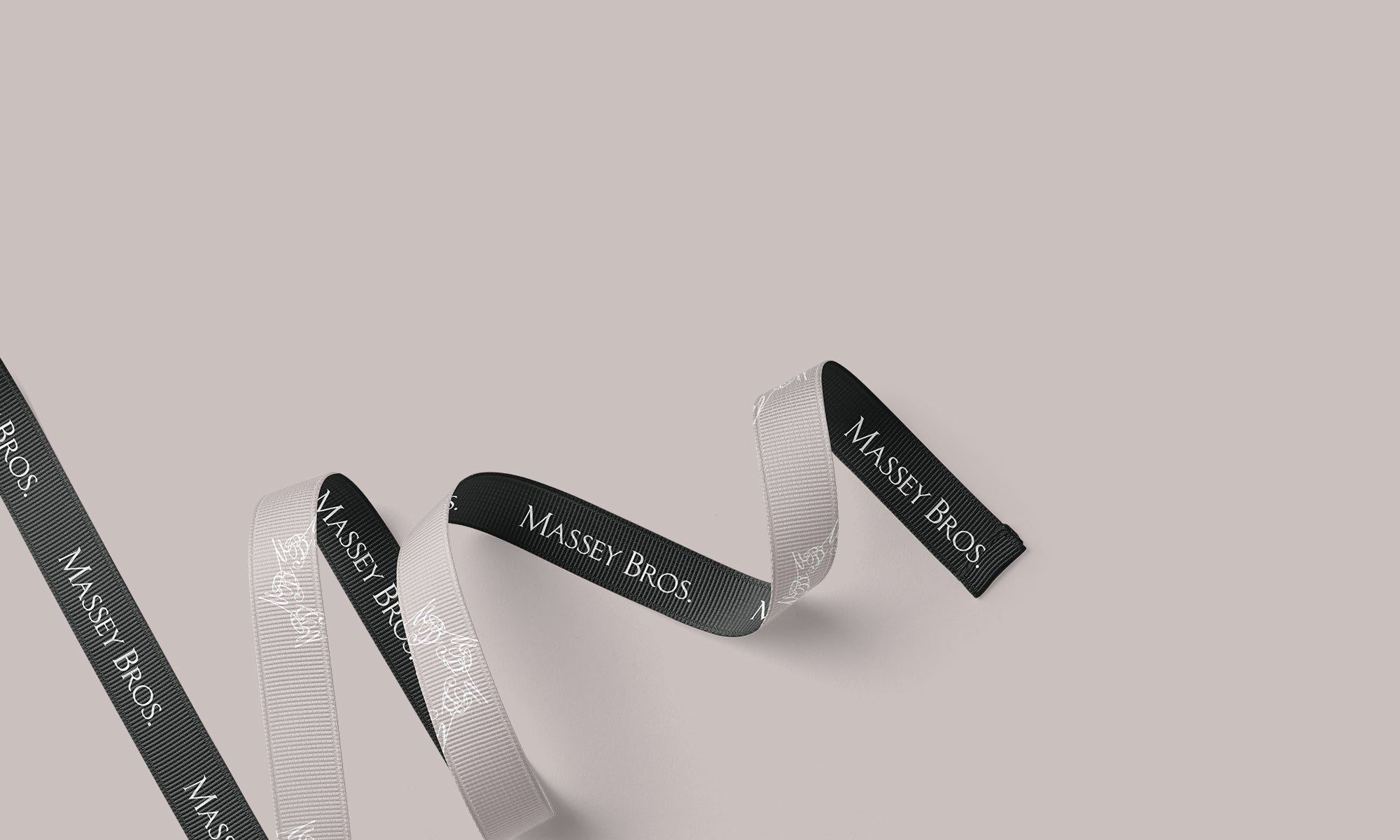
Every family is unique.
We help you to create a personal, meaningful funeral anchored in our core philosophy of honouring the lives of our loved ones.





